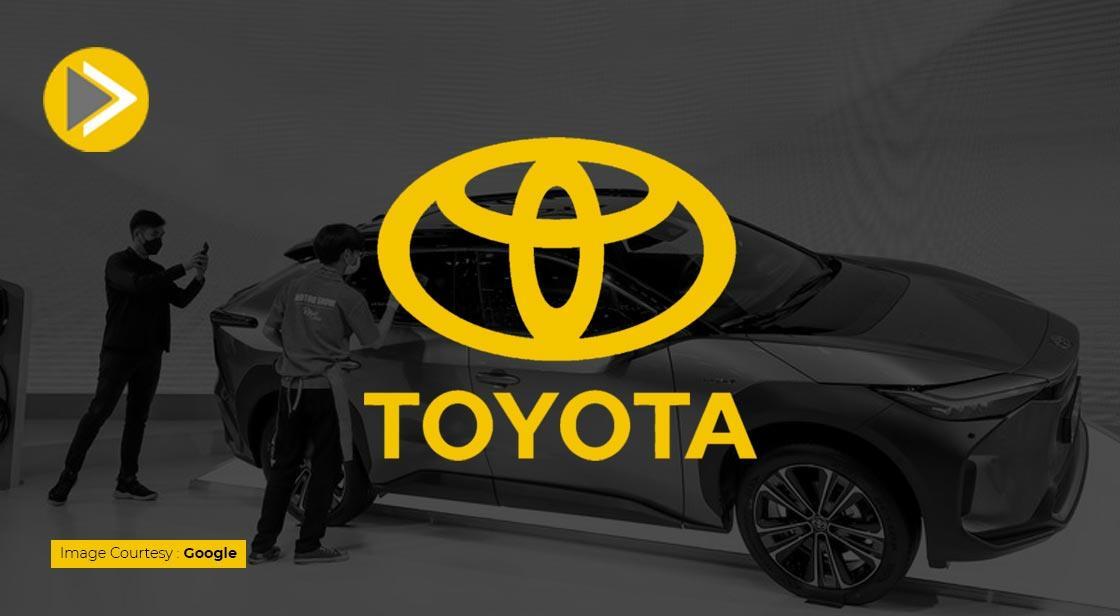Toyota Lobbies India to Cut Hybrid Car Taxes by 21%, Citing Environmental Benefits

News Synopsis
Toyota Motor, the Japanese auto giant, is actively advocating for significant tax reductions on hybrid vehicles in India, pressing the government to consider a reduction of up to 21%.
Toyota's case is founded on the argument that hybrid cars, despite being significantly cleaner than their petrol-powered counterparts, do not receive comparable tax benefits.
Tax Disparities in India
India presently imposes a mere 5% tax on electric vehicles (EVs). In stark contrast, hybrid vehicles are subjected to a 43% tax, which, although less than the 48% tax levied on petrol-powered cars, remains notably higher.
In a letter addressed to Modi's Niti Aayog think-tank, a pivotal influencer in policymaking, Toyota asserts that the 5% tax differential favoring hybrids over petrol vehicles is "inadequate." This assertion is founded on the premise of the reduced emissions and improved fuel efficiency that hybrids bring to the table.
According to sources, Toyota's India country head, Vikram Gulati, argues that the tax differential for hybrids should be expanded to 11 percentage points and for flex-hybrids, to 14 points. This adjustment would equate to a tax rate of 37% for hybrids and 34% for flex-hybrids, translating to potential cuts of up to 14% and 21%, respectively.
Toyota's Emission Reduction Focus
Toyota refrains from directly responding to the letter but underscores the significance of a balanced approach involving a mix of electrified and alternative energy sources, encompassing both EVs and hybrids. This, according to the automaker, represents the "most optimal way" to mitigate carbon emissions.
The core challenge, as outlined by sources, lies in India's existing tax structure and its reliance on typically pricier powertrain components in hybrids, including engines and electrified elements such as batteries and motors. These factors render the production of hybrids approximately "30%-35% costlier than its petrol counterparts," as articulated by Toyota.
Promoting Hybrid Incentives
In addition to tax adjustments, Toyota urges India to incorporate hybrid vehicles within a government incentive program, which currently exclusively benefits EVs.
While Prime Minister Narendra Modi's administration has exhibited a pronounced emphasis on stimulating electric vehicle sales, including substantial incentives for EV and battery production, Toyota seeks to align its manufacturing capabilities with India's rising demand for hybrids.
Why Toyota is Lobbying for a Tax Cut on Hybrid Cars?
Toyota is lobbying for a tax cut on hybrid cars for a number of reasons:
-
Hybrid cars are less polluting than petrol-powered cars. According to a recent study by the International Council on Clean Transportation, hybrid cars emit on average 36% less carbon dioxide than petrol-powered cars.
-
Hybrid cars offer greater mileage than petrol-powered cars. This means that consumers can save money on fuel costs by driving a hybrid car.
-
Hybrid cars can help India meet its carbon emission reduction targets. The Indian government is targeting a 30% reduction in carbon emissions from the transport sector by 2030. Hybrid cars can play an important role in helping India achieve this target.
What the Indian Government Should Do?
The Indian government should consider Toyota's request for a tax cut on hybrid cars. Hybrid cars offer a number of benefits, including reduced emissions, greater mileage, and lower fuel costs. A tax cut on hybrid cars would make them more affordable for consumers and help India meet its carbon emission reduction targets.
Latest Facts:
-
According to a recent study by the International Council on Clean Transportation, hybrid cars emit on average 36% less carbon dioxide than petrol-powered cars.
-
The Indian government is targeting a 30% reduction in carbon emissions from the transport sector by 2030.
-
The Indian government has recently announced a new FAME-II scheme that provides subsidies to electric vehicle buyers. However, there is no subsidy available for hybrid cars.









